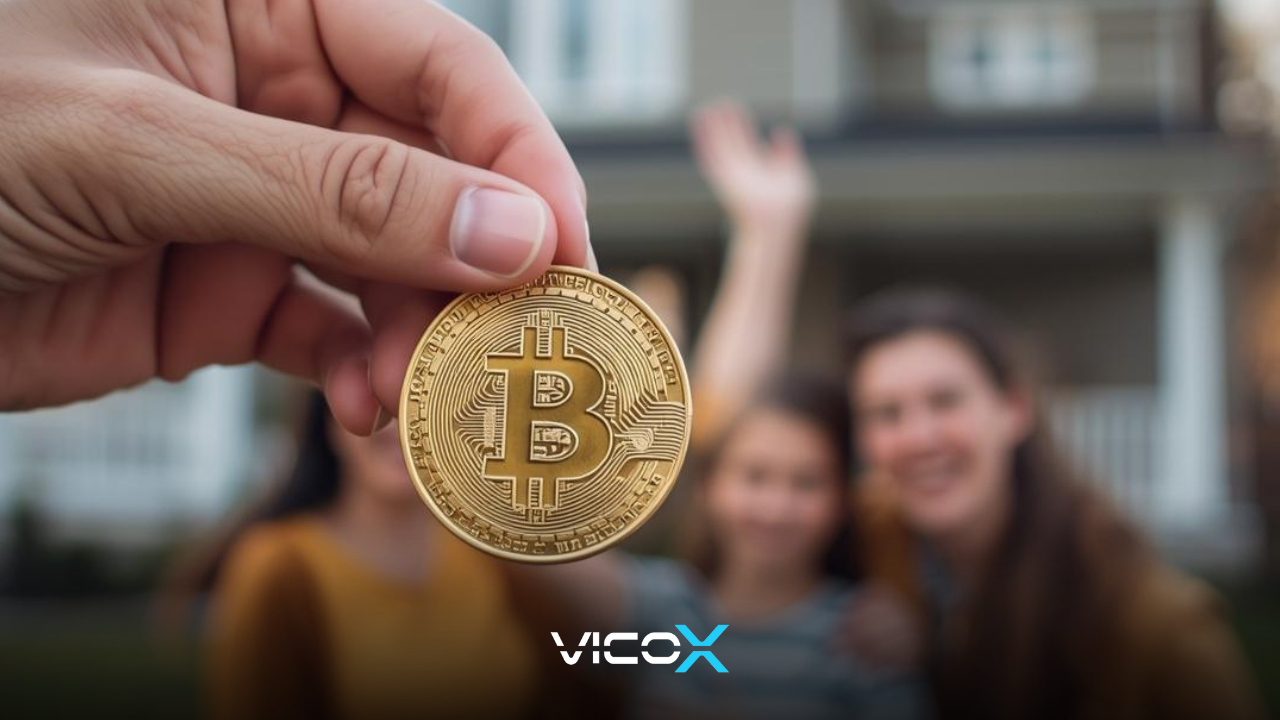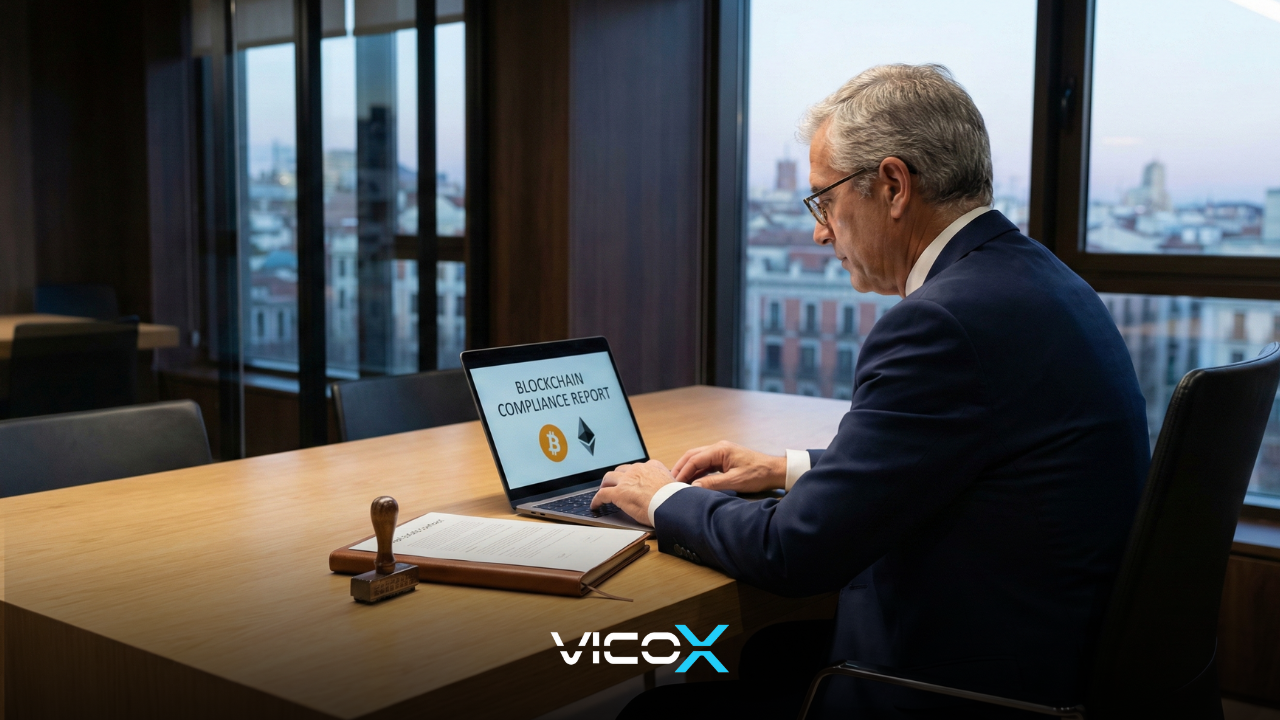Introduction
The intersection of inheritance law and cryptocurrency ownership is one of the least explored — yet most complex — areas of modern law. As more people invest in real estate using Bitcoin and other digital assets, new legal questions arise:
👉 Can a property purchased with Bitcoin in Spain be inherited just like any other property?
👉 How does Spanish inheritance law deal with crypto-originated assets?
👉 What happens if the deceased’s wallet is lost or untraceable?
This 2025 legal guide explores everything you need to know about inheriting real estate purchased with crypto in Spain — from the legal structure of inheritance and notarial requirements, to digital asset succession and tax obligations for heirs.
1. Understanding the Legal Nature of a Crypto-Funded Property
When someone buys a property in Spain using Bitcoin or other cryptocurrencies, the transaction is legally treated as:
- A property purchase in euros, even if the funds originally came from crypto.
- The crypto is first converted (directly or indirectly) to fiat value at the moment of sale.
- The notarial deed always expresses the value in euros.
👉 Therefore, in the eyes of the Spanish legal system, the property itself is not “crypto” — it is a tangible real estate asset, subject to Spanish civil law.
However, the origin of the funds (crypto) can affect inheritance documentation, tax reporting, and potential AML (Anti-Money Laundering) checks.
2. How Spanish Inheritance Law Works
Spain follows a civil law system with strict inheritance rules — especially for residents.
Key concepts:
- Testate inheritance (with a will): property is distributed as the will dictates, within limits of “forced heirship”.
- Intestate inheritance (without a will): law determines heirs based on kinship.
- Notary involvement: all inheritances of real estate require a notarial deed of acceptance (escritura de adjudicación de herencia).
Foreigners who own property in Spain may have two options:
- Apply Spanish inheritance law, or
- Elect their national law (EU Regulation 650/2012).
3. Inheritance of Property Purchased with Bitcoin
Step 1: Identify the Property and Legal Owner
- The property is registered in the Land Registry (Registro de la Propiedad) under the deceased’s name.
- Regardless of the payment method, that title determines ownership.
Step 2: Verify the Origin of Funds
If the property was bought with Bitcoin, heirs may be required to:
- Provide documentation showing the crypto’s lawful origin (to comply with AML regulations).
- Include proof of the transaction from the exchange or wallet.
Step 3: Obtain the Death Certificate and Last Will
Heirs must obtain:
- Death Certificate (Certificado de Defunción)
- Certificate of Last Will (Certificado de Últimas Voluntades)
- Copy of the will (if applicable)
Step 4: Acceptance of Inheritance before a Notary
Heirs sign the “Escritura de Aceptación y Adjudicación de Herencia”.
This document transfers ownership to the heirs and must include all properties, whether purchased with fiat or crypto funds.
4. What Happens If the Deceased Also Owned Crypto Directly?
Many investors who buy property with crypto also hold remaining digital assets.
If those wallets are not documented, heirs may never recover them.
Spanish inheritance law recognizes crypto as intangible personal property, but access depends on private keys.
To inherit crypto successfully:
- Include wallets and exchange accounts in the will.
- Store access data securely (e.g., via multisig, password manager, or legal escrow).
- Nominate a digital executor (albacea digital).
Failure to do so may result in permanent loss of funds.
5. Tax Implications for Heirs
Heirs in Spain must pay the Impuesto sobre Sucesiones y Donaciones (Inheritance and Gift Tax).
For properties purchased with crypto:
- The tax base is determined by the market value of the property, not the original Bitcoin amount.
- Payment in crypto has no special exemption.
- Tax rates vary by autonomous community (e.g., Madrid, Andalucía, Valencia).
If the deceased was non-resident, heirs pay the tax in the region where the property is located.
6. Cross-Border Complexities
For international investors, inheritance becomes even more complex:
| Situation | Legal Jurisdiction | Notes |
|---|---|---|
| EU citizen with property in Spain | Can elect home law (EU Reg. 650/2012) | Must state choice in will |
| Non-EU citizen | Spanish law applies to assets in Spain | |
| Heirs abroad | Need apostilled documents | Translation into Spanish required |
| Crypto held offshore | May fall outside Spanish inheritance tax | but still taxable if deceased was resident |
7. Crypto-Origin Transparency and AML Compliance
Since 2023, Spanish authorities require stronger documentation for crypto-origin funds used in real estate.
During inheritance:
- Notaries may request transaction history or wallet proofs.
- Lack of documentation could delay registration of the inherited property.
Best practice: heirs should retain all crypto-to-fiat exchange records and original notarial deeds.
8. Common Scenarios
Scenario A: Investor Buys a Villa in Marbella with Bitcoin
- Bitcoin was converted to euros during the purchase.
- He passes away in 2025.
- His children inherit the property.
✅ Result: They inherit normally through Spanish notarial process.
They must only declare the property value (in euros) and pay inheritance tax.
Scenario B: Investor Buys Apartment and Keeps Remaining Crypto
- Property is inherited via notarial process.
- But heirs cannot access wallets because keys are missing.
❌ Result: The property transfers legally, but the crypto funds are lost forever.
Scenario C: Property Is Tokenized
If the property was tokenized and held as fractional tokens, inheritance depends on:
- Token structure (security token, NFT, or SPV ownership).
- Whether tokens were in a custodial platform or private wallet.
Spanish law treats such holdings as personal assets, subject to declaration and inheritance tax.
9. Future Outlook — Digital Inheritance and Blockchain Notarization
By 2025, Spain and the EU are considering frameworks for digital inheritance of blockchain assets.
Possible reforms include:
- Digital vaults certified by notaries.
- Automatic transmission of wallets via smart contracts upon death verification.
- Tax automation for crypto estates.
However, for the foreseeable future, inheritance of crypto-funded properties will remain under traditional notarial control.
10. Best Practices for Crypto Property Owners
- Include crypto and properties in your will.
- Specify wallet access methods.
- State which law governs inheritance (Spanish or home country).
- Prepare a digital legacy plan.
- Secure storage of private keys.
- Trusted executor with legal authority.
- Keep AML and exchange records.
- Proof of crypto origin for future heirs.
- Consult specialized lawyers.
- Crypto inheritance involves cross-border, tax, and digital law expertise.
FAQs: Inheriting Bitcoin-Purchased Property in Spain
1. Can a property bought with Bitcoin be inherited in Spain?
Yes. Once the property is registered, it follows standard inheritance law.
2. Does the payment in Bitcoin affect inheritance rights?
No. The property is treated as any other asset. Only the origin of funds may need extra documentation.
3. How is inheritance tax calculated?
Based on the current market value of the property in euros, not the original Bitcoin value.
4. Can heirs also inherit the deceased’s crypto wallets?
Yes, if they have access credentials and proof of ownership.
5. What happens if private keys are lost?
Those crypto assets become irretrievable — they cannot be legally recovered.
Our crypto lawyers specialize in digital estate planning, inheritance, and real estate law across Spain.
Book a Free Consultation



